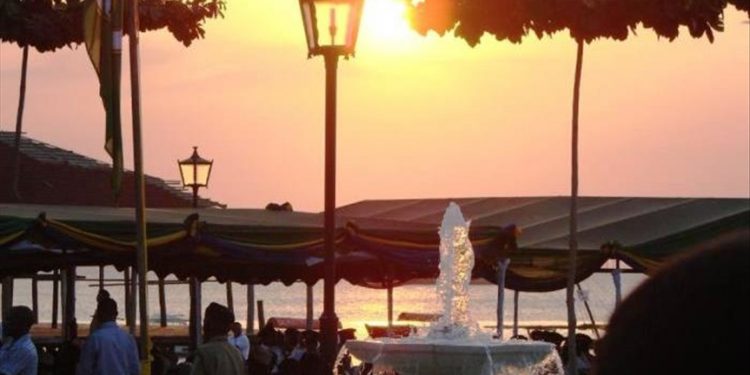UNGUJA, Tanzania
As part of a broader push to improve the economy and fight poverty, Zanzibar’s government is working on new tactics to boost its seafood exports.
The seafood industry is seen as a powerful economic driver with the potential to increase revenues on the island while supporting thousands of livelihoods.
While the outbreak of the coronavirus pandemic has inflicted serious damage on Zanzibar’s economy, the government is determined to capitalize on the rebounding seafood industry to boost its economy.
Strategic investment
Fisheries, seaweed farming, and coastal tourism sectors are identified by Zanzibar authorities as strategic areas for investment with the potential to push the island’s economy to greater heights, officials said.
The concept of blue economy, coined by the UN in 2012, is perceived as a catalyst for social and economic development by the people in Zanzibar.
Aboud Jumbe, the permanent secretary in the Blue Economy and Fisheries Ministry, said Zanzibar’s government in conjunction with other partners is already implementing various initiatives to promote the seafood industry as part of its broader plans to tap ocean resources for economic gains.
“What we want to do is to stimulate production and increase exports of fish products,” he told Anadolu Agency.
Perched in the Indian Ocean, the semi-autonomous island off the coast of Tanzania is blessed with many marine resources.
Although fisheries play an important role in Zanzibar’s economy, the industry is not fully developed and most fishers are still using old fishing methods.
While small island economies across Africa get economic gains from the fisheries sector, officials said fishing activities in Zanzibar are still of a small scale.
In 2019, Zanzibar’s fisheries sector contributed merely 4.8% to the GDP, representing a 0.4 increase from 2018. A total of 36,728 tons of fish worth 196.65 billion Tanzanian shillings ($83.7 million) were harvested during the time compared to 38,107 tons reaped in 2020.
Ayoub Mahmoud, the regional commissioner for Zanzibar’s Unguja North, said the island is deeply committed to strengthening its seafood industry through effective production and marketing strategies.
“With better marketing strategies, we will certainly increase revenue in this sector,” he told Anadolu Agency.
Mahmoud said more investment is needed to increase the sector’s contribution to the economy.
“Zanzibar will soon be a hub for international seafood business that will increase employment, improve trade balance and promote our food security,” he asserted.
Skills and knowledge pool
Despite making some progress, analysts say in order for Zanzibar to achieve its dream, it must invest in human capital to bridge wide gaps in technical expertise needed to improve the fisheries sector.
“Zanzibar does not have enough trained personnel with knowledge and relevant technical skills in taking, culturing, processing, preserving, storing, transporting, marketing, and selling of fish,” said Flower Msuya, a senior marine biologist at the University of Dar es Salaam.
“I think a lot of our traditional fishermen are beginning to see the importance of modernizing their craft to benefit from the blue economy,” she said.
Culinary park
After sunset, Forodhani gardens in the heart of Zanzibar’s historic stone town transform into a culinary arena.
Local women dressed in burqas and tourists leisurely navigating their way through a labyrinth of narrow streets flock to a small park while hungry-looking stray cats aggressively mew for leftovers.
At dusk, a maze of wooden tables and grills are brought to the fore and before long customers can smell the aroma of fresh fish, meat, shrimp kebab wafting their way.
“I love this place, the food is delicious. We do not usually cook dinner, the whole family eats here,” said Fakir Hussein, a resident of Zanzibar.
As aromatic smoke billows, a dozen of wide-eyed chefs, clad in white hats, drum up orders on their cutting boards.
The chefs adeptly point to their culinary creations to grab the attention of customers who must give in to their sale pitches.
“There is no bad day here, lots of people are flocking daily, I am always overwhelmed with orders,” said Farouk Salum, a chef.
The night market at Forodhani is a lively delight drawing locals and tourists and offers a glimpse at an extensive history and culture.
Grabbing something to eat, find a spot to sit, take a glass of sugar cane juice, levelers say is a great way to spend a night at Forodhani.
As customers are raving about everything from hot Urojo soup and salad to the fresh shrimps, Maulid Makame, a business proprietor, has nothing to complain about.
With 13 years of experience, the 43-year-old cook has grown his entrepreneurial venture into a booming business.
“Seafood business is my life, I do not imagine doing any other business,” he told Anadolu Agency.







